Hi everyone,
I have spent a good bit of time browsing around here wallowing in the wonderful world of sewing, and have come upon a puzzle. Nowhere else have I encountered the word “sewist”. On this board I have seen it used to mean “sewer”, “newbie” and “person who does not sew”. Yup, I’m puzzled. I cannot find it in any dictionaries in print or online.
The suffix “-ist” usually describes a negative thing. Take for example, the words “racist” or “sexist”. Both suggest that the person described is against the prefix of the word. (Edited to add – the only positive example I can think of off the top of my head is “hobbyist”.)
So I am confused. I have sewn for 35 years and love it. I was always so happy as a sewer. Is the new word for sewer, “sewist”?
🙂 Mary
Edited 8/16/2006 7:30 pm by Ckbklady


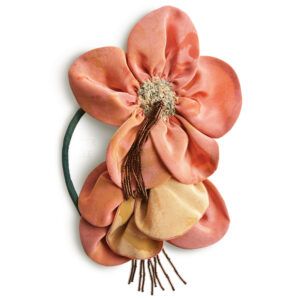

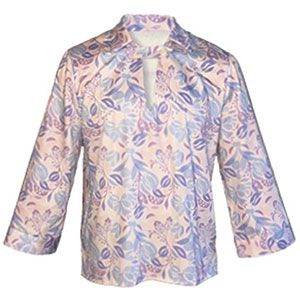
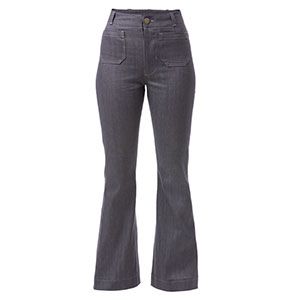
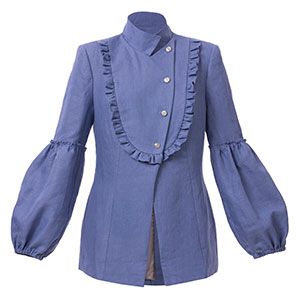
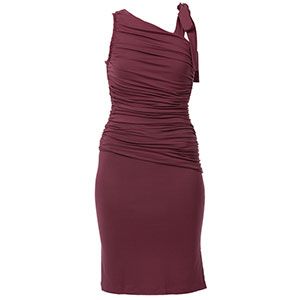
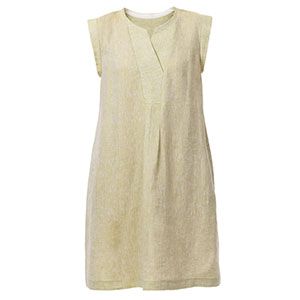
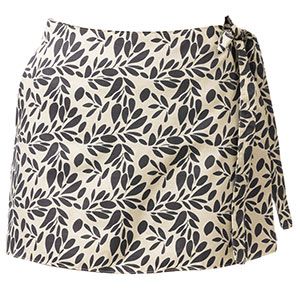
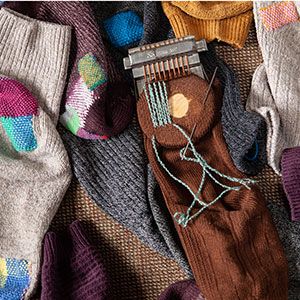

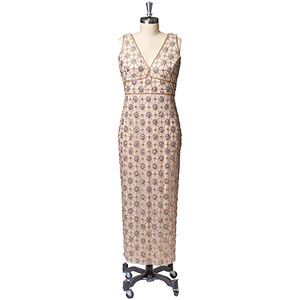


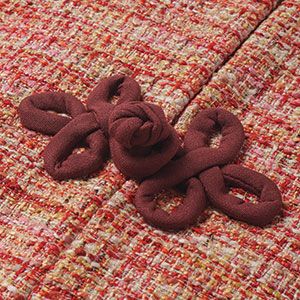








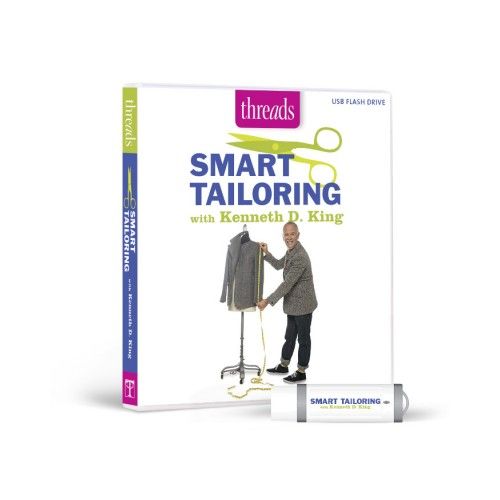



Replies
I disagree with the statement that the suffix "ist" usually connotates something negative. What about artist, violinist, guitarist, gymnast, etc.? The list goes on! I personally don't mind sewist or even seamstress, though some think it politically incorrect. The word "sew-er" should have the hyphen in my opinion, otherwise it can be pronounced to mean something very unpleasant.
for those of us who aren't American there are lots of words which are quite different even though we all speak English. For instance Sergers are Overlockers in the rest of the world . I had never heard the term Newbie or Sewist before coming on this sight. Its very interesting and often a source of concern to English speakers around the world that their particular brand of English is being supplanted by another. However English would have to be one of the most hybridized languages in the world so I suppose its nothing new!!
In Australia we don't really have those huge underground passages called sewers(soo-ers).Our sewerage goes through a 'sewerage system'- I have never heard people here talking about things called 'soo-ers'. I for one never ever think soo-er when I call myself a sewer (so-er), and I certainly never even read it as 'soo-er' until I saw it on Patternreview,
The comment that people in other countries are becoming concerned about the re-writing of our traditional English language is very much the case in Australia. We often have Letters to the Editor in big newspapers.
The 'Americanisation' of our language is very worrying to us, as American cultural influences bombard our children via all media outlets. Our peculiarly Aussie language 'quirks' are being lost, even though many people are desperately trying to keep them alive. They are often what makes us 'Us'.
At risk of sounding inflammatory(but not meant to be), a lot of my friends are completely puzzled as to the reason that people from the USA seem to change the pronunciation of just about every word we can think of (e.g. we say bazz-il,you say bar-sil,..I won't go on..there are so many). It's all a bit puzzling.
My husband probably would have enjoyed being a philologist (expert in linguistics) except there aren't very many jobs available (so he is in computers and studies words on the side). So........ we often have dinner time discussions of words and how they have changed and where did they come from and where are they going..... We have dictionaries all over the house, one for every occasion!
Webster's New Universal Unabridged Dictionary (10 lbs. a real heavy weight!) has this entry for "-ist" : a noun suffix meaning one who practices or is occupied with, or is a believer in.....
So the negative or positive connotations derive from the first part of the noun not the "-ist".
About English in general.... it has always been a "Velcro" kind of language, it picks up words from all over the world! England was a major power on the high seas and many sailors brought wonderful new words home with them. Then there was America... such an independent spirit was nurtured here. The first colonists needed that spirit or they would not have survived. And their children (us) have turned their virtue into very nearly something like a vice. And we are getting lazy, no longer willing to speak and write with precision as our forefathers did before us. We abuse words and pronunciation with great abandon and call it progress!
Some American mothers are also fighting the "Americanization" that is being exported by the media; it is not really "American" it is a generalized downgrading of western civilization! Some one has said "We are ever only one generation from a return to Barbarism". (note: my dictionary links misuse of words, loss of civilization and brutal behavior under the def. of barbarism)
So to all the mothers and grandmothers (and fathers too) who are in this culture war... keep up the fight, teach your children that words have meaning and may not be trifled with, with out great consequences!
Cogito ergo suereo .... I think therefore I sew
Becky
American English is a conglomeration of other languages, based on English. Languages do change and the meanings of words can change, too.
As for American pronunciation changing all words, I can see your point, but within America there are huge regional differences in English. Not only with different accents, like Southern and Mid-Western, but think of how differently someone from Boston sounds than someone from L.A. In North Carolina, there's a community of people who had been described as still speaking an Elizabethan form of English. Later that was debunked, but in some parts of the South, elderly people still use a lot of the more "English"- sounding pronunciations, like using the "ah" sound for the "a" sound in words like "cat," dropping the "r" at the ends of some words, adding "r" to some words that don't have it (not unlike the Boston accent, but sounds very different).
Within each individual state, there are often accents or word patterns that can identify where a person was raised. If the cashier at the grocery store asks if you want your purchase in a "poke" (a paper bag), you are probably in Union, SC. In Maine, you would push a "carriage" through the grocery store to put your purchases in, but most other places would call it a "shopping cart" or a "buggy."
I don't think Americans intend to change the pronunciation and meanings of words. Instead, they say it like they hear it or see it. They are quick to accept and adopt new words and uses of words, probably because it is facilitates communication. The way I see it, American English is all about context. I don't think the comment about the Americanization of words was inflammatory. Instead, it's an interesting opinion of American English.
The word sewist is just a newly made-up word for people who sew. I use sewist because sewing is my hobby, so I feel that it is more accurate than seamstress or tailor and I don't like the word sewer. I detest the phrase "fabric artist." Too self-important. There was a discussion about this on PatternReview.com also. I think it's pretty cool that new words are being invented all of the time to describe new stuff, or redefine old stuff.
Thank you - that's what I thought - that it was a recent invention. For those who dislike "sewer" or "seamstress" (is the male a "seamster"? I suppose so...) and the dreaded "fabric artist" (icky, I agree), I suppose it is an adequate substitution.
I don't have an opinion one way or another about "sewist", but as an old-fashioned gal, I am happy with "sewer" or "the crazy sewing lady", as I heard my 7-year old neighbor refer to me once, giggle! :) Mary
Yes, crazy sewing lady is probably better than the others. Ther's supposed to be a new TV show about people being "Superheroes ." My DD said I should be Super Knitter Woman or Super Sewer. See, that doesn't look good. LOL!
For men, there's "shootist" for professional gunfighter. "Sewer," although time-honored by use, drives me nuts, because of its alternate meaning in print. I mean, I cannot stand it.
Having sewing for over forty years, I call myself a sewist, like a hobbyist, as gogojojo aptly mentions. I am indeed an artist, but not a "fabric artist," for heaven's sake. Neither am I a seamstress, because that is a profession, and I never sew for money.
I'm a linguist, and I'm also, erm, a person who sews. I hadn't seen "sewist" before I started reading stuff online about sewing; but it did make sense to me right away!
I was interested to see how much "sewist" was catching on -- and the neat thing about the internet is you can do quick-and-dirty linguistics experiments using google.
I get 15 600 google hits for "sewist" and 45 400 000 for "sewer". From these numbers, you can't say that "sewer" is still more popular to describe people who sew that "sewist" -- because of course the count of pages which include "sewer" includes references to both sewage and sewing. But, if you add a second word to your search which is unlikely to appear when people talk about sewage (say "stitch"), you can compare the numbers.
For sewist + stitch I get 720 hits. For sewer + stitch, I get 176 000. So I'd say that "sewer" is about 250 times more popular than "sewist".
Someone should remind me to do this again in five years to see how it changes!
Fun stuff!
That's a brilliant idea - periodically checking the popularity of the words of Google. Just this morning I noticed a news article online that said that "Google" has always been a verb to highschoolers and college students.
Ah, the mysteries of language!
:) Mary
Whoa, another linguist who sews? And I thought I was the only one! Still, it's a bit too much like work to read about etymology on my favorite sewing forum....
Hi,
I'm also a linguist who sews - this is so neat to meet others! (So are my aunt and my mother).
We have this discussion all the time at Threads! It's great to see all this thinking---very impressive!
I agree! I was curious why anyone would invent a new word when there was a perfectly good one lying around, but everyone's responses made perfect sense. English is a living language, after all. That we can create new words with as much skill as a beautiful garment is no surprise. That we can each use the word that fits us best (and even without a sloper, imagine!! LOL) is a credit to Gatherings. It is as delightful to behold as are Threads' back covers.
:) Mary
This post is archived.